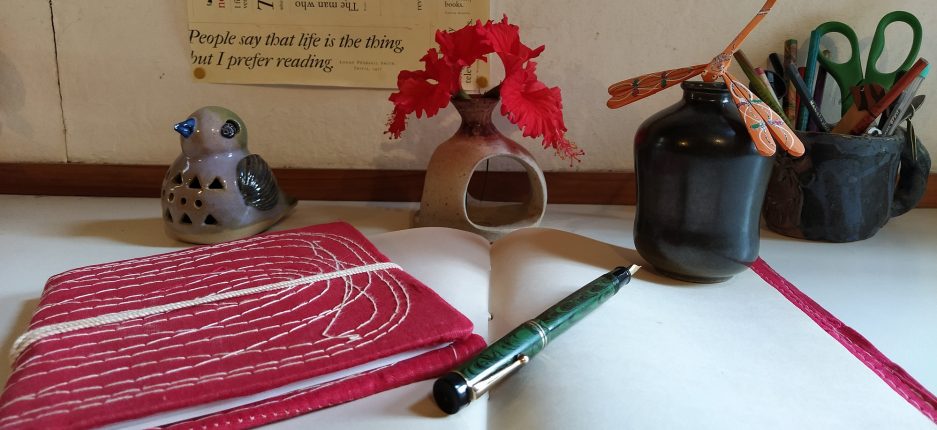So the ultimate in luxury seems to be “Make Google Do It”! As the ads remind us your little Google Assistant will do it all for you—Play music, Cast videos, Control your lights, Get step-by-step cooking recipes, Stay updated with news and sports, and anything else that you shall wish for—Just Ask and your wish is its command. This is the new age Aladdin’s Lamp, no less!
Not so long ago, we still remember walking back and forth from the Black and White television set to change the channel (from the limited selection available). Then came the Remote! And its fallout—a generation of couch potatoes! And more recently, the Fitbit and Gym generation that needs to burn the calories collected courtesy the hard-working Bot!
It is the age of too much, an age of choices galore. For those who can afford it, the choice is no longer ‘Keeping up with the Joneses’, but staying ahead of ‘Those who have Everything.’
But what are the choices being offered, and what are we choosing?
I am reminded of a simulation exercise that we often did as environmental educators. We would ask participants to imagine that they have to leave their home due to a sudden disaster in the area. Before they leave they have time to take just 20 things that they can carry with them. They are not allowed to take money. They do not know where they are going, when they will reach, and if and when they will be able to return. They must make a list of these 20 things. Once they had done this, they were told that the truck that was carrying them is overloaded, and they have to drop 5 of the 20 things they were carrying. What would they choose to leave? Once they have done this, they were further told that the truck has broken down and they will have to walk. Which 5 of the 15 items will they discard? Now the list has 10 items. As they go ahead they are stopped by a gang of dacoits who demand five items from the ones they are carrying. Which ones will they give, and which ones will they keep? Now they are left with 5 items.
At the end we would review each one’s list, and think about the choices each one made, and the reasons for these. We would, perhaps for the first time, review our own belongings from the perspective of Needs–those that were essential for survival; Wants–those that were desirable but not indispensable, and those that were things we owned because we could afford to—Luxuries.
This is not simply an abstract exercise; in news reports every day we see heart-rending scenes of millions of refugees—ousted from their countries and homes by natural calamities, political upheavals, social and cultural persecution. People with nothing to their name. People for whom simple survival is a luxury.
For those of us fortunate enough to have choices, and the luxury of more than we need, it may be worth sparing some thought to our personal List of 20-5-5-5. How much do we really need?
“He who knows he has enough is rich.” (From the Tao Te Ching an ancient Chinese philosophical poetry.)
–Mamata

Wow – I really like that 20-5-5-5 exercise. It really highlights how much of what I have just fulfils wants versus needs.
A few years back we did a similar version in reality. My family and I were moving to the woods where we would end up living in a 300 square foot yurt. We were moving from a 3 bedroom house in a small city. In the end other than our bed, cats, and a few pots and pans we had a handful of things. These things fit in to 12 boxes that were small enough to ship via post. In the end we ended up saving a few books we cared about, photo albums with sentimental value, some CDs and cassettes, our computer, and some of our clothes. Everything else was given away.
Even those things were not all *needs*. Only the clothes really were necessary. The cookware was necessary also but I may have managed to get by with less of that. Years later we moved back to a “normal” house and it is surprising to see how quickly all of our stuff accumulates. There is more stuff in this one room I am sitting in than we brought to the yurt.
Another thing of interest to me particularly here in the west is the balance of wants and needs as related to the amount of time we have. To have a lifestyle with lots of wants granted, we need to have a good job and work a lot of hours. If we scale back to needs-only, our budget drops significantly. We need only to buy food, pay for housing (but a smaller place), and a little transportation. How much less do we need to work if we do that? How much more time do we get with our family if we do? In my experience it is significant. I barely needed to work at all and was able to spend the first four years of my son’s life at home with him and my partner.
Thanks for the thought-provoking entry!
LikeLike
Admire the choices you are making! Sometimes we are so caught up in the routine and rush that we don’t stop and think. We really need to live more mindfully.
LikeLiked by 1 person
Very thought provoking. I like the 20-5-5-5 activity.
LikeLiked by 1 person